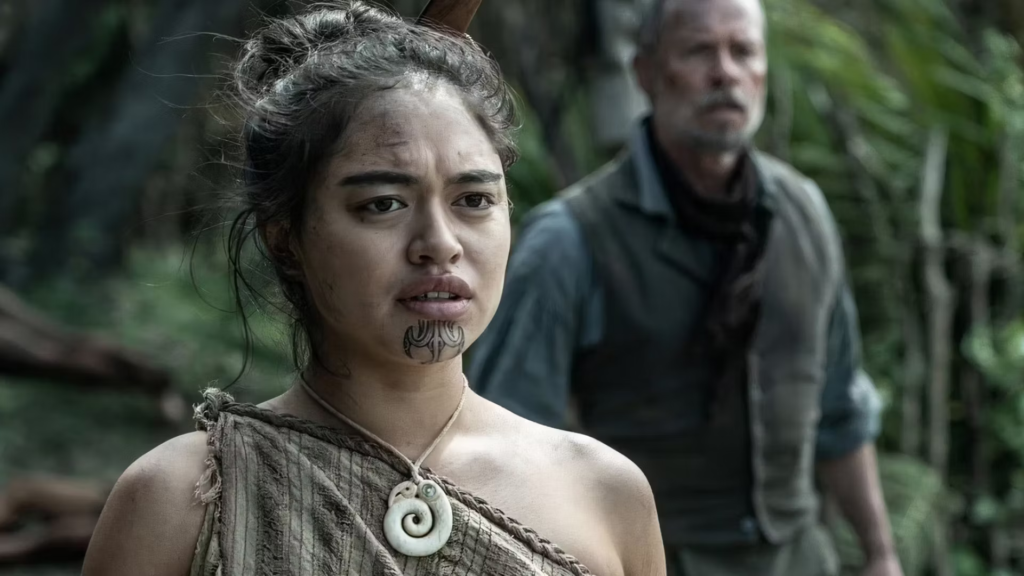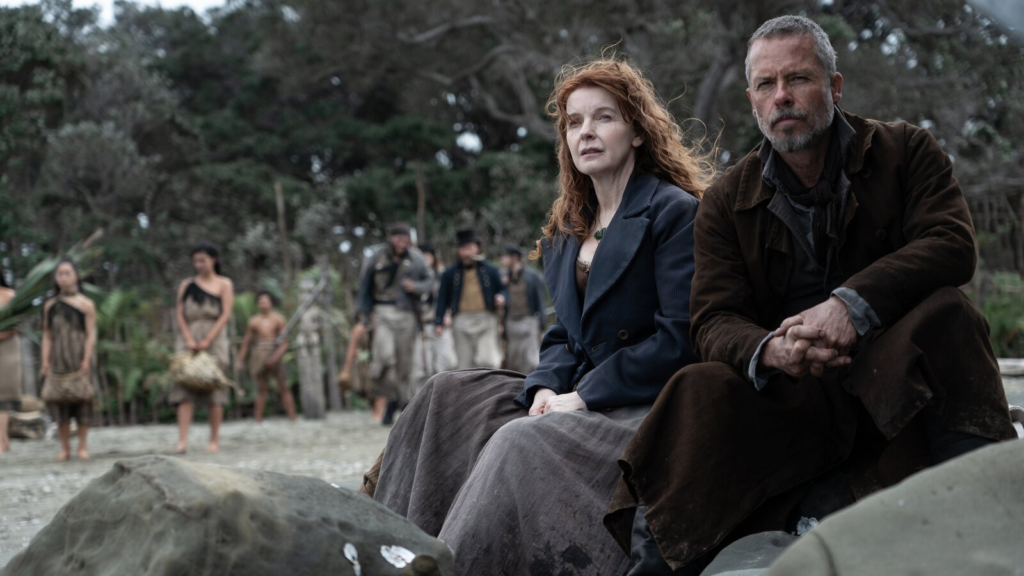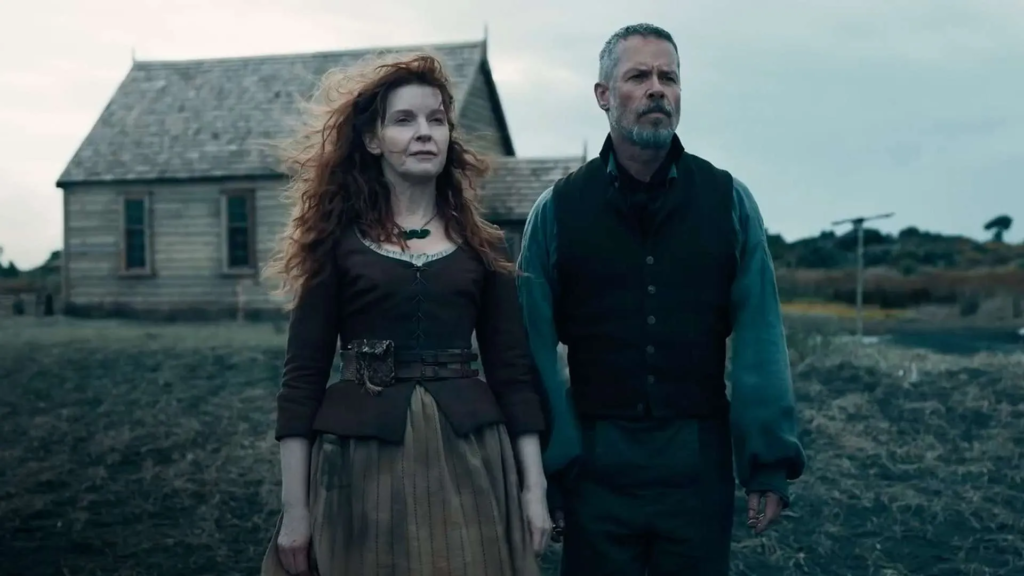Director: Lee Tamahori
Writers: Michael Bennett, Shane Danielsen, Lee Tamahori
Stars: Guy Pearce, Tioreore Ngatai-Melbourne, Antonio Te Maioha
Synopsis: A lay preacher arrives at a British settlement in 1830s. His violent past is soon drawn into question and his faith put to the test, as he finds himself caught in the middle of a bloody war between Maori tribes.
Lee Tamahori’s historical epic The Convert is the story of Thomas Munro (Guy Pearce) – a lay preacher who, in 1830, arrives in Aotearoa to take up a position in the new colony town of Epworth. The Convert is a much larger story, one of the pernicious effects of colonization, but Tamahori cuts his canvas down to it coming from the point of view of Munro, the stoic heroic type who has seen too much of the darkness in the hearts of men.

Kedgley (Dean O’Gorman) a trader and ship captain points to a shore and says to Munro, “Never has perdition been so pretty to the eyes.” For the white colonist, the idea that the land they are on is either paradise or hell is spoken of often. “If you have come here to bring souls to Jesus, you’ll be very busy,” Kedgley laughs. He’s not only referring to the Māori iwi who are in the midst of the Musket Wars, but also of the unsurprisingly racist and vicious townspeople of Epworth, for most of whom being termed ‘civilized’ is laden with hypocrisy.
Before Munro even reached Epworth (an area which would later expand into Auckland), he witnessed the slaughter of a group of Māori warriors by Akatarewa (Lawrence Makoare). Munro intervenes and narrowly avoids being killed himself because Kedgley steps in and Uenuku (Ariki Salvation-Turner) Akatarewa’s son has been sailing with him.
Munro’s intervention saves the life of Rangimai (Tioreore Ngatai-Melbourne), who later becomes his charge in Epworth where her chieftain father Maianui (Antonio Te Maioha) leaves her to become the Māori voice among the Pākehā. Along with the gentle young Pahirua (Duane Evans Jr.), Rangimai becomes embedded in the settlement, much to the open disgust of most there. Munro finds himself becoming an outsider within the township along with Charlotte (Jacqueline McKenzie), a woman already positioned as a pariah because of her association with the Māori people and her ability to speak their language.
The ‘good Christian people’ of Epworth reveal their true colors soon enough and Munro, Charlotte, and Rangimai enter Maianui’s Pā. Charlotte and Munro are tolerated by Maianui for their role in caring for his family. However, Maianui is not willing to hear of the ways of the Pākehā God; nor does he seek to be told that his hapu must give up their belief in utu – the balancing of retribution and payment.

There is a pat familiarity to The Convert which borders on cliché. Munro is a man seeking redemption through peace and finds himself in a world of war – to ensure some manner of peace for the Māori people he will need to go to war. The full weight of the Musket Wars is never properly conveyed because it skips too quickly to resolution.
Tamahori’s commitment to showing authentic Māori culture on the screen is where The Convent finds its footing. Thus, it is a shame that so much of the film is devoted to Munro’s spiritual and emotional journey instead of hewing to the people who are being devoured by the influence of Europe. Seeing more of Uenuku and his relationship with his father, Akatarewa could have stopped the movie being almost always under the auspices of Munro’s experience and perspective. Contemporary audiences are canny enough they don’t require a constant ‘inroad’ character. Even if they did, there is an equally good one in Charlotte – an Irish convict whose understanding is built on experiences Munro could only imagine.
As good as Guy Pearce is – and he is good, he doesn’t hold a candle to Tioreore Ngatai-Melbourne who blazes with bravery and intelligence. The performances are across the board solid, but Ngatai-Melbourne, Te Maioha, Evans Jr., and Marris Collins as a Kapu elder are magnetic.
The Convert is incredibly shot by Gin Loane bringing a vivid sense of place and time. The attention to detail of the artistry and specificity of a way of life struggling on multiple fronts is excellent. What the film lacks is the firm commitment to digging into that way of life on its own terms instead of through the arc of an outsider character.

The Convert comes close to being a vital and visceral historical epic but pulls itself back a little too often by not knowing where the focus should rest. Even with its flaws, the film is a glimpse into a moment in time rarely seen. It is not Tamahori’s crowning achievement – that still being the brutal Once Were Warriors, but it is good to see the director working in his own country once more.





